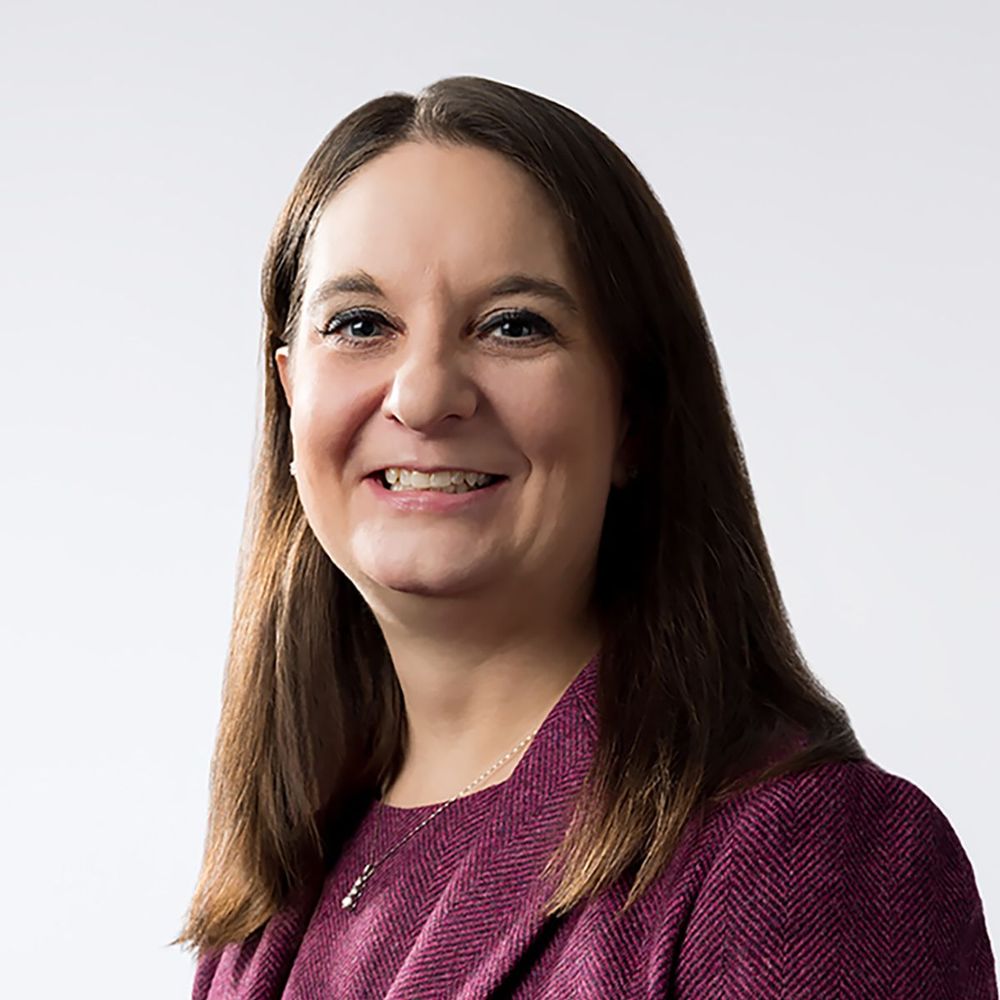Dear reader,
Welcome to the latest edition of The Forum File. In this edition, we are highlighting our firms’ efforts to work with diverse partners and increase representation and opportunities in the financial industry.
Wishing all of you a wonderful holiday season and we look forward to continuing the conversation in 2024.
Kevin Fromer, President and CEO, Financial Services Forum
Penny for Your Thoughts
Kimberly DeTrask is State Street Corporation’s Executive Vice President and Treasurer with global responsibility for balance sheet management, the investment portfolio, and capital and liquidity management
Tell me about State Street’s program to work with diverse underwriters?
State Street is a significant issuer of financial instruments, such as debt and equity securities. Underwriters evaluate the risk of these instruments before they go to market and provide the channel from the issuer to the investing community. Successful execution of an issuance requires strong partnerships with other institutions, including banks and other financial firms, leveraging a range of information and opinions.
In 2020, we decided to consciously increase our partnerships with minority, women, and veteran-owned institutions as part of our commitment to inclusion, diversity, and equity.
In Q4 2022, State Street issued its first sustainability debt offering with a syndicate that included a veteran-owned firm as a bookrunner, and included black-, women-, and Hispanic-owned firms as co-managers. This year we have continued our commitment of using at least one diverse firm per deal as a primary underwriter, or bookrunner, as well as having multiple diverse co-managers.
In 2023, we have distributed more than one-third of deals to diverse firms across $6.25 billion in debt issuances.
How has the experience been?
This has been a fantastic experience for us, and I believe for our diverse partners as well. This work has had a number of important returns. Importantly, we have found our diverse partners to be valuable resources in their differentiated perspectives and content. One of our partners, for example, is a veteran-owned firm named Academy, which provides specialized research on geopolitics that our team finds valuable in assessing global risk factors.
Additionally, this is an important contribution we can make to help increase representation in the industry. We choose to work with firms we see are true to their mission by reinvesting into their firm, employees, and community. It also helps us to bring in a diversified investor base to debt offerings, as our diverse underwriting partners provide access for investors who are not regularly reached by “bulge bracket” firms. Our diverse partners have also served as valuable trading partners in State Street’s bank investment portfolio with good trading coverage and market color.
What’s ahead for 2024?
We will continue to build on the success of the program, remaining focused on increasing our partnership with diverse counterparts while also increasing representation and opportunities across our industry and in our communities.
Value Add

State Street in September marked the opening of its new global headquarters in downtown Boston, home to State Street for more than 230 years.
“This is the beginning of a new and exciting chapter in our company’s rich history, and one that will provide our employees with a state-of-the-art working environment that will increase our ability to collaborate and ultimately, help us achieve better outcomes for our clients, our employees and the industry,” said Ron O’Hanley, chairman and chief executive officer of State Street Corporation.
Additionally, State Street launched its new brand and digital-first visual identity to better reflect the future of the organization. The new brand is designed to reflect the company’s innovation and history of firsts. Brand remains a critical driver of the company’s success, employee engagement and market value.
Capital Gains
What we’re doing in Washington
In an op-ed published in Fortune, Forum President and CEO Kevin Fromer warned that the Basel III Endgame proposal to increase bank capital requirements would harm consumers, small businesses, and the broader economy if implemented as proposed. “The largest banks, fundamentally strengthened by a series of changes, have served as a source of support by extending enormous amounts of credit, helping customers navigate uncertainty, and stabilizing the broader banking sector at a critical moment,” Fromer said. “Policymakers must demand extensive changes to the Basel III Endgame proposal so the banking sector can continue its essential role in the U.S. economy–and to avoid taxing consumers and businesses for no appreciable benefit to financial stability.”
Fromer also appeared on Bloomberg TV to discuss the negative impacts of the Basel III Endgame proposal, the strength of the largest U.S. banks, and the lack of consensus that more capital is needed. “We have been through many, many years of activity where these institutions have encountered everything you can throw at them and they have been operating with more than enough capital,” he said. Read more and watch the full interview.
Following testimony by U.S. financial regulators before the Senate Committee on Banking, Housing, and Urban Affairs, the Forum issued a statement dispelling common myths about the Basel III Endgame proposal.
The Forum issued a statement following the approval by the Federal Deposit Insurance Corporation of a special assessment to recover losses resulting from use of the Systemic Risk Exception in connection with the closures of Silicon Valley Bank and Signature Bank. “Forum members are ironically paying a substantial portion of the restoration though they did not benefit from the systemic risk exception determination,” Fromer said. “Forum members again acted as sources of strength and support to the financial system and the broad economy, as they did during the COVID-19 pandemic.”
The Forum outlined the negative impacts of the Basel III Endgame proposal’s operational risk capital requirements and the market-making capital requirement, and highlighted the broad array of outside voices raising concerns about the negative impacts of the proposal.
Our Two Cents
Research from the Forum
In the latest BankNotes blog, Chief Economist and Head of Policy Research Sean Campbell explains why the notion that increasing required bank capital is not a problem because the banks “already have enough” is a dangerous misconception.
The BankNotes blog also highlighted recent research from the Federal Reserve Bank of New York that underscores the illogic of the Basel III Endgame proposal.
Checking the Balance
Members in the News
Bank of America announced four New York City-based women- and minority-owned businesses to join the firm’s annual Small Business Spotlight Program, which offers local entrepreneurs and businesses the opportunity to reach new customers. Each business is currently showcasing their products at the Bank of America Winter Village at Bryant Park, a popular winter shopping and tourist destination.
To kick off the holiday season, BNY Mellon is hosting its third annual Giving Tuesday Community Week of Impact, a campaign that encourages the firm’s employees to support their local communities. It is estimated that the bank’s employees will volunteer more than 3,000 hours in the one-week period.
Citi was named Best Digital Bank 2023 by Global Finance Magazine. This marks 22 consecutive years of recognition as a global banking leader by the publication. Citi was also named Best Corporate/Institutional Digital Bank Globally.
Goldman Sachs partnered with Hall of Fame women’s basketball player and coach, Dawn Staley, on a TV advertisement to address the racial wealth gap in the United States. This ad is part of Goldman Sachs’ One Million Black Women initiative to help narrow opportunity gaps, both through direct investments and grants, as well as by amplifying the voices of Black women in the U.S. to help catalyze public policy change.
JPMorgan Chase announced a $3.5 million commitment to expand apprenticeship opportunities nationwide. These commitments expand on the firm’s efforts to help individuals, particularly those from underserved backgrounds, enter the workforce and compete for quality careers.
Morgan Stanley’s Next Level Fund raised $50 million to invest in early-stage technology companies led by entrepreneurs from historically underrepresented populations. Target sectors include technology, consumer/retail, financial technology, healthcare, consumer products and media and entertainment.
State Street announced that it is offering an automated workflow solution with Depository Trust and Clearing Corporation within the firm’s foreign exchange trading service. State Street’s new service, StreetFX, streamlines foreign exchange trading for clients by enabling a faster no-touch, post-trade processing workflow.
Wells Fargo committed $1.5 million to the Russell Innovation Center for Entrepreneurs (RICE), an Atlanta-based organization focused on supporting Black businesses. This investment will be used to construct a new learning lab at RICE and a digital platform that will be created to provide entrepreneurial training on a national scale.
